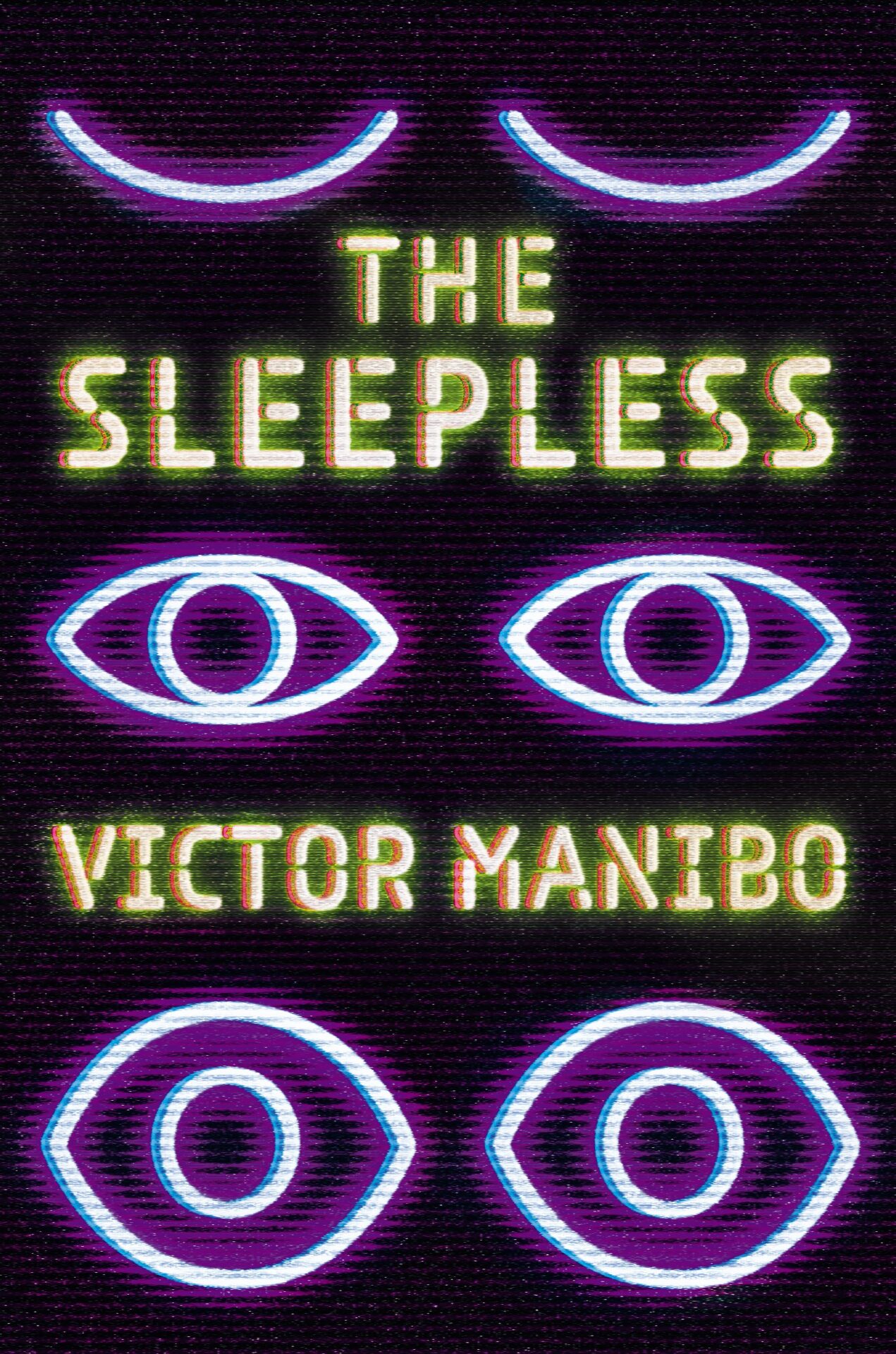
Victor Manibo is joining us today to talk about his novel, The Sleepless. Here’s the publisher’s description:
Journalist Jamie Vega is Sleepless: he can’t sleep, nor does he need to. When his boss dies on the eve of a controversial corporate takeover, Jamie doesn’t buy the too-convenient explanation of suicide, and launches an investigation of his own.
But everything goes awry when Jamie discovers that he was the last person who saw Simon alive. Not only do the police suspect him, Jamie himself has no memory of that night. Alarmingly, his memory loss may have to do with how he became Sleepless: not naturally, like other Sleepless people, but through a risky and illegal biohacking process.
As Jamie delves deeper into Simon’s final days, he tangles with extremist organizations and powerful corporate interests, all while confronting past traumas and unforeseen consequences of his medical experimentation. But Jamie soon faces the most dangerous decision of all as he uncovers a terrifying truth about Sleeplessness that imperils him—and all of humanity.
What’s Victor’s favorite bit?

VICTOR MANIBO
My favorite bit of The Sleepless is Chapter Ten, where the protagonist, investigative journalist Jamie Vega, has a casual encounter with a man he meets on a hookup app. Aside from a lot of research, drafting this section required the interweaving of disparate story threads, bringing together quiet character moments with deeper revelations about this imaginary world I created.
The chapter unfolds as Jamie is running out of options, in more ways than one. As one of the Sleepless, he doesn’t require sleep but also doesn’t suffer any physical or psychological downsides. Despite this, he still needs ways of running on low-power mode, as it were, so that he can keep his wits sharp and keep from getting fatigued. At this point in the story, Jamie has been investigating the mysterious death of his mentor, and has been through the wringer, both physically and emotionally. He’s tried his usual methods of relaxing: alcohol, meditation, VR gaming, sensory deprivation, but he still can’t seem to relieve his stress. So he turns to a hookup app.
Although The Sleepless is set in New York twenty years from now, I imagined that parts of the hookup culture would be mostly unchanged. The allure of the unknown, the prospect of immediate gratification, and the use of technology would probably be much the same as it is now. And, of course, sexual release as a coping mechanism might never change, for better or worse. So, following a particularly frantic day, Jamie jumps on a hookup app similar to Tinder or Grindr. He scrolls through aliases and anonymized photos, weighing each potential partner, eventually settling on a man who is “close enough”, both geographically and close enough to his standards.
One reason that I enjoyed writing this scene is that I don’t usually see portrayals of queer sex in science fiction or noir stories. I also enjoyed having an opportunity for me to show Jamie’s fracturing mental state. As a nod to classic hardboiled detective novels, I was able to show Jamie’s less-than-ideal coping mechanisms. While some lose themselves at the bottom of a whiskey bottle, Jamie uses random sex to relieve stress and disassociate from the world. In this scene, He depersonalizes his partner, acts generally detached, and seems to have little regard to anything but his own internal struggles.
Jamie finds this easier to do than usual because the anonymous man who shows up on his doorstep turns out to be a Sleepless fetishist. In the awkward flirtations leading up to sex, the man reveals how he prefers to sex with Sleepless people, which Jamie has strong feelings against. Much in the same way that people are objectified based on their race, Jamie views this Sleepless “chaser” as a kind of bigot whose sexual desires are intertwined with harmful stereotypes.
This is another reason that I enjoyed writing this chapter. I wanted the book to explore the myriad ways that hyperinsomniacs are discriminated against. Some view them as unnatural freaks, some fear them on superstitious or religious grounds, some resent them for having more time and opportunities. But aside from the more obvious, I also wanted to show that even those who appear to be on the side of the Sleepless don’t have the purest intentions. Some act insidiously in the hope of exploiting them, and some, like Jamie’s hookup partner, exoticize them: carrying negative generalizations and treating them as the “other”.
At one point, the man calls him “special”, and this arouses revulsion in Jamie. Nonetheless, he proceeds to sleep with the man, going through the motions while his mind wanders off. He has a complicated relationship to being termed “special”, and I explore this in the next, more interior scene, where Jamie traces his journey into becoming Sleepless. This section reveals much of the backstory of how the Sleepless pandemic spread around the globe, and how its spread has plateaued around the time the novel opens. Ten years after the initial outbreak, Jamie has become one of the increasingly rarer new cases of hyperinsomnia.
This part involved a bit of research on the spread of pandemics and disaster response, and then a substantial revision. I had initially drawn a bleak picture of how the world would react to a mysterious outbreak that prevented humans from sleeping: there were quarantine camps, mass exterminations, and the like. But when our own world was affected by a pandemic of its own, I knew I had to had to reconsider my story choices.
Writing about a pandemic during an actual pandemic was an interesting, if not surreal, endeavor. After seeing the world’s response to the spread of coronavirus, and understanding how our institutions can operate—and fail—I reworked this section to be closer to how things played out in the last few years. Current events had made the theoretical real, and, I hope, made the story more impactful.
The term “special” affects Jamie not only because he is newly Sleepless, nor because it shows his fetishization. He’s also special in a different way: unlike the billions became Sleepless naturally, he did so by biohacking himself. For reasons fully revealed elsewhere in the book, Jamie chose to undergo a risky and illegal process to become a hyperinsomniac, and in this scene, as he ponders on being special, we see how on some level he has come to regret that decision.
The chapter closes with Jamie alone in his bed post-coitus. He acknowledges that his hookup did grant him relief, but he is also forced to face feelings of shame. His feelings in that moment encapsulate the history of Sleeplessness, his personal history with it, his feelings about his condition, and his being othered because of it. That synthesis of plot, worldbuilding and character work is what makes this part of The Sleepless my favorite bit.
LINKS:
The Sleepless Universal Book Link
BIO:
Victor Manibo is a speculative fiction writer living in New York City, and his writing is influenced by his experiences as an immigration and civil rights lawyer. As a queer immigrant and a person of color, he also writes about the lives of people with these identities.
